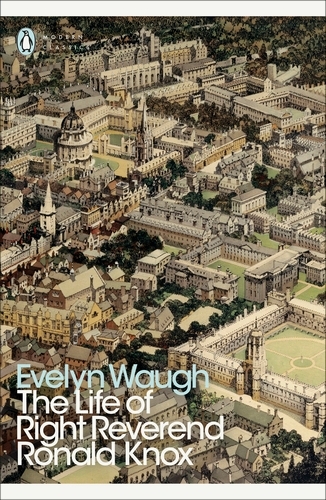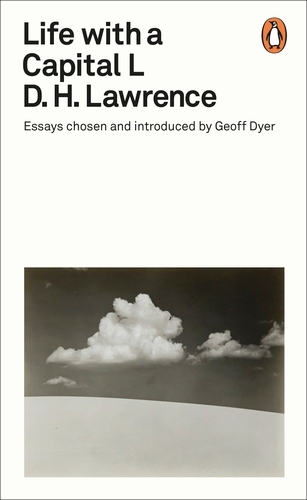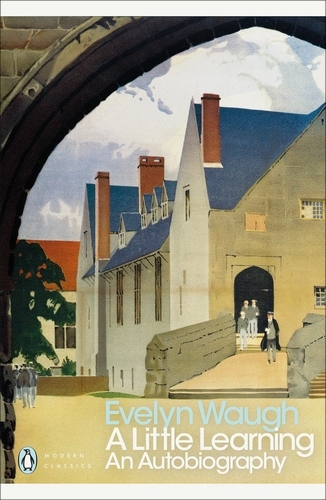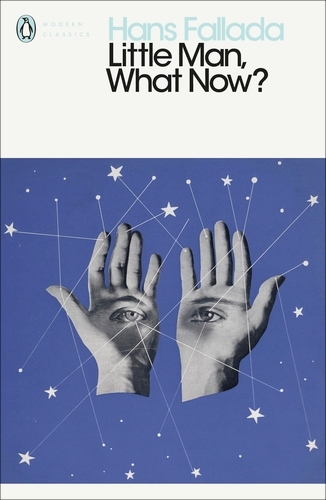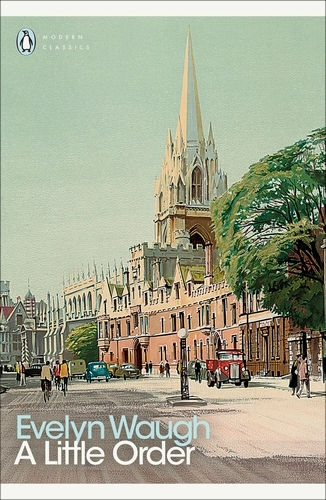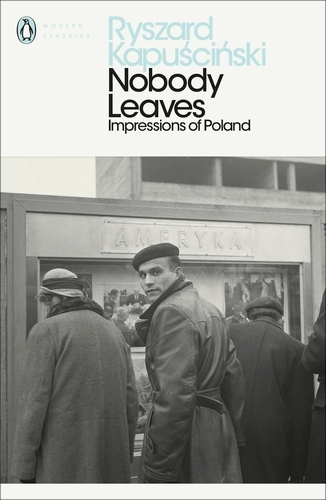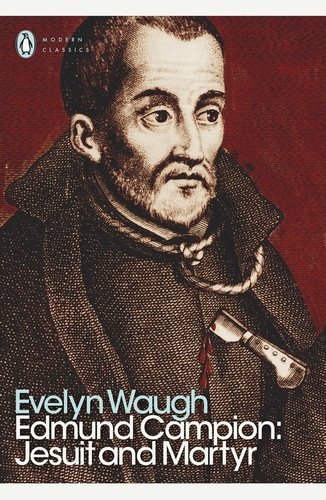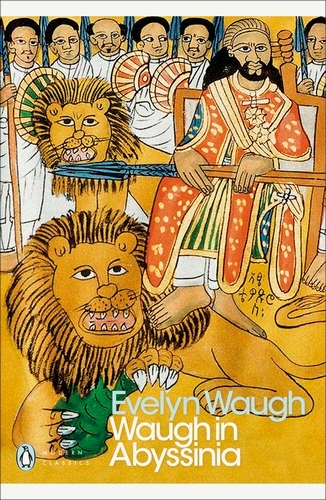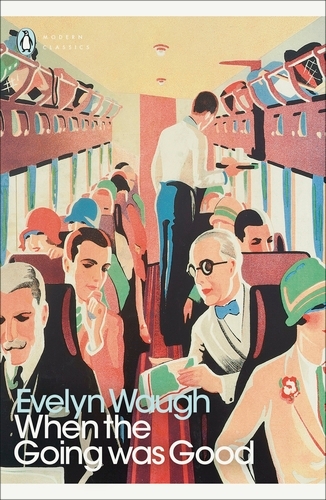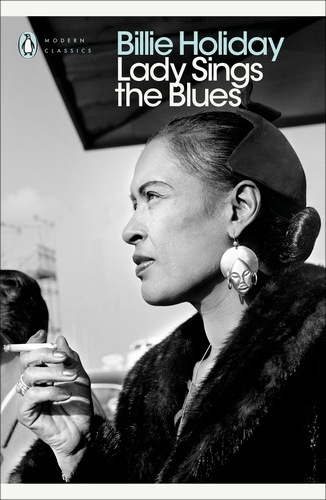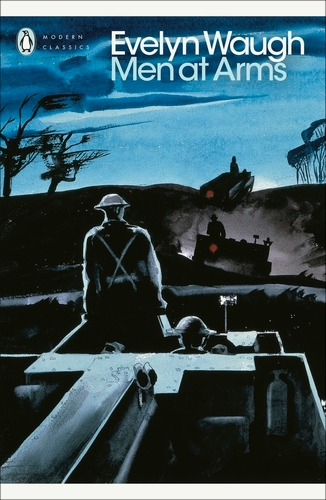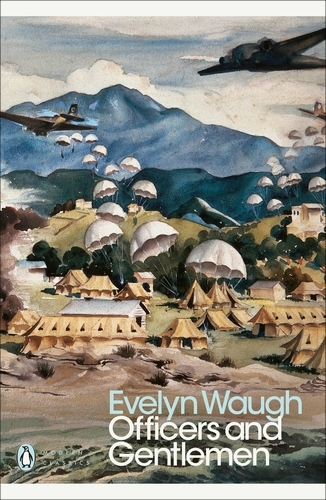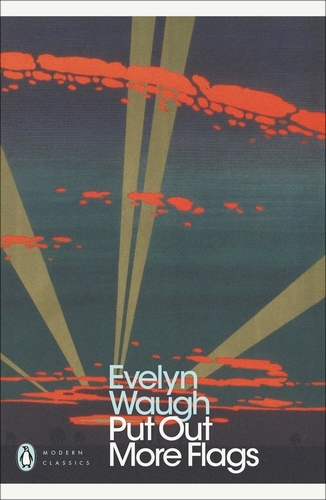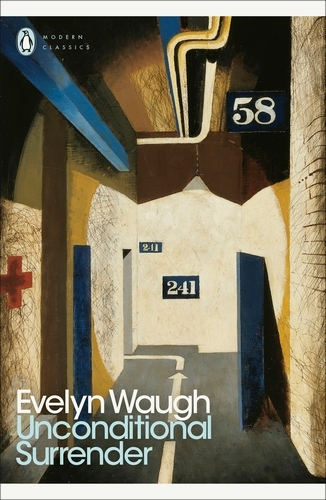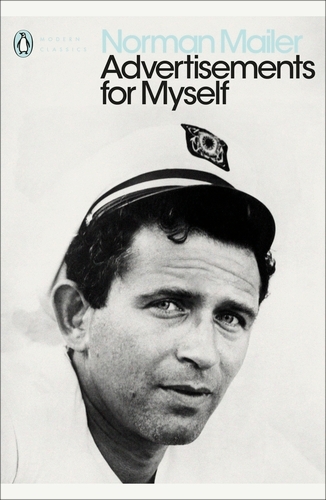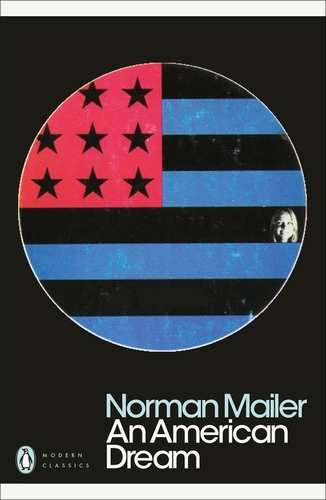Penguin Modern Classics
1282 books in this series
The Life of Right Reverend Ronald Knox
Ronald Knox - priest, classicist and brilliant, prolific writer - was one of the outstanding men of letters of his time. The renowned Oxford chaplain was a friend of figures such as G. K. Chesterton and Hilaire Belloc, and was known for his caustic wit and spiritual wisdom. Evelyn Waugh, his devoted friend and admirer, was asked by Knox to write his biography just before his death in 1957. The result, published after two years of research and writing, is a tribute to a uniquely gifted man: 'the wit and scholar marked out for popularity and fame; the boon companion of a generation of legendary heroes; the writer of effortless felicity and versatility ... who never lost a friend or made an enemy'.
Life with a Capital L
For D. H. Lawrence the novel was the pinnacle, 'the one bright book of life', yet his non-fiction shows him at his most freewheeling and playful. This is a selection of his brilliantly varied essays, on subjects including art, morality, obscenity, songbirds, Italy, Thomas Hardy, the death of a porcupine in the Rocky Mountains and the narcissism of photographing ourselves. Arranged chronologically to illuminate the patterns of Lawrence's thought over time, and including many little-known pieces, they reveal a writer of enduring freshness and force.
A Little Learning
'Only when one has lost all curiosity about the future has one reached the age to write an autobiography.' Waugh begins his story with heredity, writing of the energetic, literary and sometimes eccentric men and women who, unknown to themselves, contributed to his genius. Save for a few pale shadows, his childhood was warm, bright and serene. The Hampstead and Lancing schooldays which followed were sometimes agreeable, but often not. His life at Oxford - which he evokes in Brideshead Revisited - was essentially a catalogue of friendship. His cool recollection of those hedonistic days is a portrait of the generation of Harold Acton, Cyril Connolly and Anthony Powell. That exclusive world he recalls with elegant wit and precision. He closes with his experiences as a master at a preparatory school in North Wales which inspired Decline and Fall.
Little Man, What Now?
The book that made Hans Fallada famous, Little Man, What Now? is filled with an extraordinary mixture of comedy and desperation. It tells the story of one of European literature's most sympathetic young couples - 'Boy' and 'Lämmchen' - as they battle indomitably through a world of grotesque threats in Depression Berlin. A rich gallery of hulking crooks, maternity nurses, nudists, a terrible mother and Nazi streetfighters cannot shake their love for each other. But is love enough in a city as cold and indifferent as Berlin in 1932?
The great novel of Weimar Germany, Little Man, What Now? is full of men and women trying to keep ahead of their bills and hang on to their daydreams, from harrassed men's clothing assistants to a very unlucky chocolate shop owner. This brilliant new translation by Michael Hofmann brings to life an entire era, one that was - as neither Fallada nor his characters knew - just about to be swept away.
The great novel of Weimar Germany, Little Man, What Now? is full of men and women trying to keep ahead of their bills and hang on to their daydreams, from harrassed men's clothing assistants to a very unlucky chocolate shop owner. This brilliant new translation by Michael Hofmann brings to life an entire era, one that was - as neither Fallada nor his characters knew - just about to be swept away.
A Little Order
Whether celebrating Hogarth or savaging Hollywood, mocking modern manners or defending traditional English architecture, inviting readers to 'come inside' the Catholic Church or expressing his contempt for modish Marxism and American-style religion, Evelyn Waugh's journalism is sparkling, sometimes vitriolic and always full of good sense. In this wonderful selection he explores his Oxford youth, his unexpected conversion, his literary enthusiasms (from P. G. Wodehouse to Graham Greene) and the perils of basing fictional characters on real people. Decades after their publication, these pieces still retain their capacity to delight, to surprise and to shock.
Nobody Leaves
When the great Ryszard Kapuscinski was a young journalist in the early 1960s, he was sent to the farthest reaches of his native Poland between foreign assignments. The resulting pieces brought together in this new collection, nearly all of which are translated into English for the first time, reveal a place just as strange as the distant lands he went on to visit.
From forgotten villages to collective farms, Kapuscinski explores a Poland that is post-Stalinist but still Communist; a country on the edge of modernity. He encounters those for whom the promises of rising living standards never worked out as planned, those who would have been misfits under any political system, those tied to the land and those dreaming of escape.
From forgotten villages to collective farms, Kapuscinski explores a Poland that is post-Stalinist but still Communist; a country on the edge of modernity. He encounters those for whom the promises of rising living standards never worked out as planned, those who would have been misfits under any political system, those tied to the land and those dreaming of escape.
Edmund Campion: Jesuit and Martyr
In 1581 Edmund Campion, a Jesuit priest working underground in Protestant England, was found guilty of treason and hanged, drawn and quartered at Tyburn. Years later he would be beatified. Evelyn Waugh's compelling and elegant narrative is a homage to the man he revered as a poet, scholar, hero and martyr. He tells Campion's story with a novelist's eye for detail, from his success as an Oxford scholar, through his travels around Europe, his doomed secret mission to England and on to his capture and dramatic trial.
Vividly re-creating a time of persecution and surveillance, Waugh writes that 'the hunted, trapped murdered priest is our contemporary and Campion's voice sounds to us across the centuries'.
Vividly re-creating a time of persecution and surveillance, Waugh writes that 'the hunted, trapped murdered priest is our contemporary and Campion's voice sounds to us across the centuries'.
Waugh in Abyssinia
In 1935 Italy declared war on Abyssinia and Evelyn Waugh was sent to Addis Ababa to cover the conflict. His acerbic account of the intrigue and political machinations leading up to the crisis is coupled with amusing descriptions of the often bizarre and seldom straightforward life of a war correspondent rubbing shoulders with less-than-honest officials, Arab spies, pyjama-wearing radicals and disgruntled journalists. Witty, lucid and penetrating, Evelyn Waugh captures the dilemmas and complexities of a feudal society caught up in twentieth-century politics and confrontation.
When the Going Was Good
Between 1929 and 1935 Evelyn Waugh travelled widely and wrote four books about his experiences. In this collection he writes, with his customary wit and perception, about a cruise around the Mediterranean; a train trip from Djibouti to Abyssinia to attend Emperor Haile Selassie's coronation in 1930; his travels in Aden, Zanzibar, Kenya and the Congo, coping with unbearable heat and plagued by mosquitoes; a journey to Guyana and Brazil; and his return to Addis Ababa in 1935 to report on the war between Abyssinia and Italy. Waugh's adventures on his travels gave him the ideas for such classic novels as Scoop and Black Mischief.
Lady Sings the Blues
"I've been told that no one sings the word 'hunger' like I do. Or the word 'love'."
Lady Sings the Blues is the inimitable autobiography of one of the greatest icons of the twentieth century. Born to a single mother in 1915 Baltimore, Billie Holiday had her first run-in with the law at aged 13. But Billie Holiday is no victim. Her memoir tells the story of her life spent in jazz, smoky Harlem clubs and packed-out concert halls, her love affairs, her wildly creative friends, her struggles with addiction and her adventures in love. Billie Holiday is a wise and aphoristic guide to the story of her unforgettable life.
Lady Sings the Blues is the inimitable autobiography of one of the greatest icons of the twentieth century. Born to a single mother in 1915 Baltimore, Billie Holiday had her first run-in with the law at aged 13. But Billie Holiday is no victim. Her memoir tells the story of her life spent in jazz, smoky Harlem clubs and packed-out concert halls, her love affairs, her wildly creative friends, her struggles with addiction and her adventures in love. Billie Holiday is a wise and aphoristic guide to the story of her unforgettable life.
Men at Arms
Guy Crouchback, determined to get into the war, takes a commission in the Royal Corps of Halberdiers. His spirits high, he sees all the trimmings but none of the action. And his first campaign, an abortive affair on the West African coastline, ends with an escapade which seriously blots his Halberdier copybook. Men at Arms is the first book in Waugh's brilliant trilogy, Sword of Honour, which chronicles the fortunes of Guy Crouchback. The second and third volumes, Officers and Gentlemen and Unconditional Surrender, are also published in Penguin Modern Classics.
Officers and Gentlemen
Guy Crouchback is now attached to a commando unit undergoing training on the Hebridean isle of Mugg, where the whisky flows freely and HM forces have to show respect for the laird. But the comedy of Mugg is followed by the bitterness of Crete.
Put Out More Flags
What happened to the characters of Decline and Fall and Vile Bodies when the war broke out? Put Out More Flags shows them adjusting to the changing social pattern of the times. Some of them play a valorous part; others, like the scapegrace Basil Sea, disclose their incorrigible habit of self-preservation in all circumstances. Basil's contribution to the war effort involves the use of his peculiar talents in such spheres of opportunity as the Ministry of Information and an obscure section of Military Security - adventures which incite Evelyn Waugh to another pungent satire upon the coteries of Mayfair.
Unconditional Surrender
Guy Crouchback has lost his Halberdier idealism. A desk job in London gives him the chance of reconciliation with his former wife. Then, in Yugoslavia, as a liaison officer with the partisans, he finally becomes aware of the futility of a war he once saw in terms of honour.
Advertisements for Myself
Advertisements for Myself is a comprehensive collection of the best of Norman Mailer's essays, stories, interviews and journalism from the Forties and Fifties, linked by anarchic and riotous autobiographical commentary. Laying bare the heart of a witty, belligerent and vigorous writer, this manifesto of Mailer's key beliefs contains pieces on his war experiences in the Philippines (the basis for his famous first novel The Naked and the Dead), tributes to fellow novelists William Styron, Saul Bellow, Truman Capote and Gore Vidal and magnificent polemics against pornography, advertising, drugs and politics. Also included is his notorious exposition of the phenomenon of the 'White Negro', the Beat Generation's existentialist hero whose life, like Mailer's, is 'an unchartered journey into the rebellious imperatives of the self'
An American Dream
As Stephen Rojack, a decorated war hero and former congressman who murders his wife in a fashionable New York City high-rise, runs amok through the city in which he was once a privileged citizen, Mailer peels away the layers of our social norms to reveal a world of pure appetite and relentless cruelty. One part Nietzsche, one part de Sade, and one part Charlie Parker, An American Dream grabs the reader by the throat and refuses to let go.
